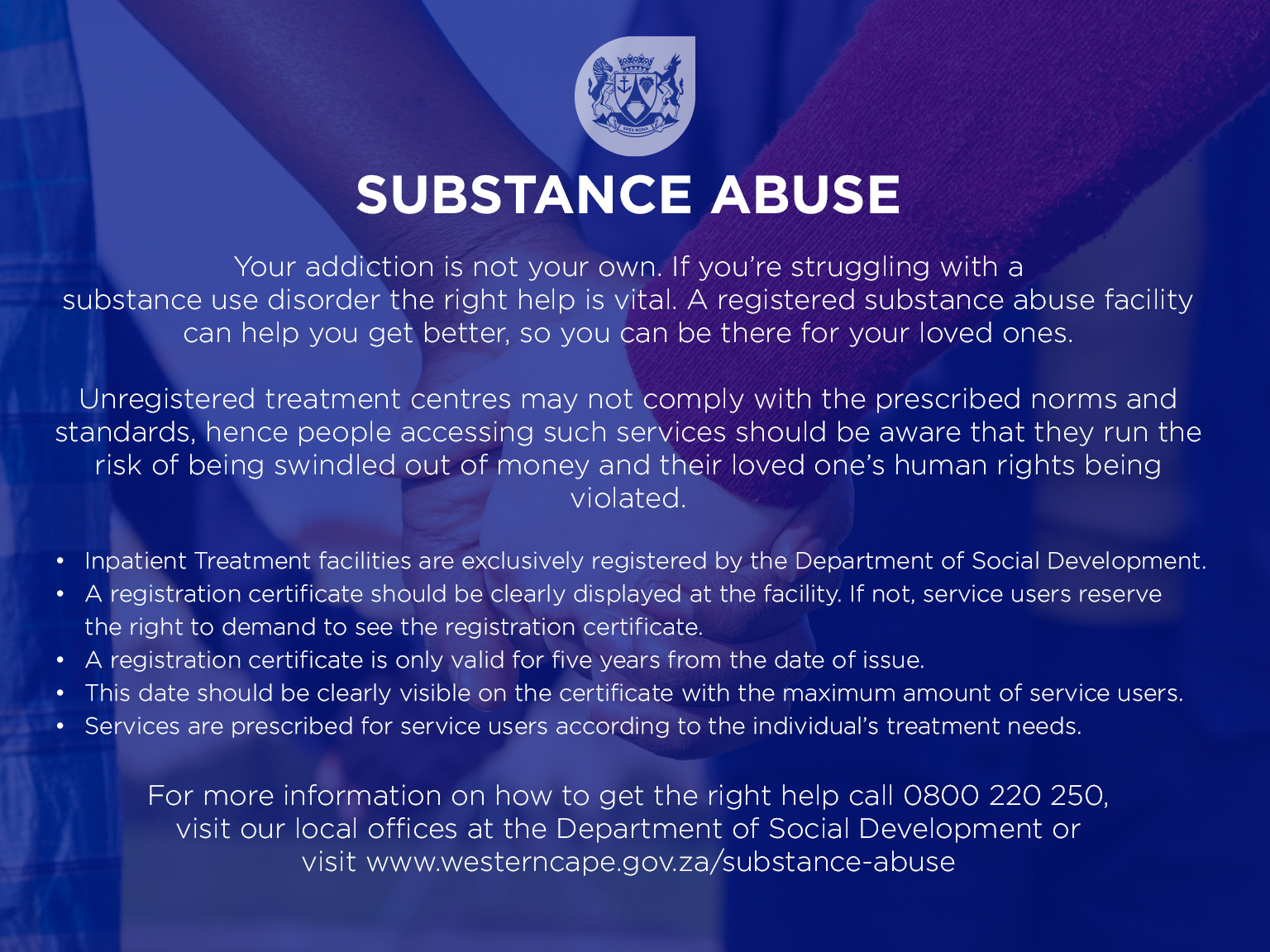
News
Parents with children who struggle with drug-addiction urged to seek assistance
The Western Cape Minister for Social Development, Sharna Fernandez, calls on parents dealing with issues relating to substance abuse within the home, to seek assistance from her Department.
“Confronting a child about getting support for his/her addiction can be a daunting task. Children with substance use disorders (SUD) may become aggressive or even abusive if they feel that their parent(s) is betraying them by exposing their addiction to a school teacher, social worker or a community member,” said Minister Fernandez.
“It is important to remember that one’s sense of reality becomes distorted due to substance abuse – hiding the true impact of the illness. Many children may have no idea of the effects of their drug use, on their parents, family members and communities. They may be in denial so much that they don’t realise how chaotic their lives have become.
I wish to remind every parent struggling with a drug-addicted child that you are not alone,” added Minister Fernandez.
The provincial Department of Social Development with the support of its Non-Profit Organisation (NPO) partners provide a wide array of (SUD) programmes, ranging from prevention, early intervention through to community-based and in-patient rehabilitation and aftercare services.
For the current financial year, R102 million has been budgeted for substance abuse programmes and services.
During the 2019/20 financial year, 11 155 individuals accessed substance abuse prevention and treatment services offered by the Department and its partners.
Services offered by the Department and its NPO partners include, amongst others:
• Awareness, primary prevention, early intervention and aftercare services;
• Specialised services for victims of gender-based violence. Female service users can also be admitted with their minor children for the duration of their treatment.
• Specialised treatment for adolescent boys between 13 and 17 years of age, at two funded inpatient treatment centres;
• Residential or in-patient treatment centres and non-residential outpatient (also known as community-based) treatment centres for adults;
• Reintegration and after-care support;
• School-based programs at identified high-risk schools aimed at early detection and appropriate interventions for children involved in substance abuse.
The latest Phase 47 report (2021) compiled by the South African Community Epidemiology Network on Drug Use (SACENDU) reveals that in the Western Cape, Tik continues to be the most widely used drug, followed by cannabis, alcohol and heroin, which together comprise 89% of all admissions to our treatment centres.
Finding the right help:
If you or someone you care about has a SUD or if you feel that you can’t cope with the symptoms of substance abuse in your home or place of work, getting help is the first step.
The treatment of a SUD is a process, and ongoing support is provided throughout a programme.
Before starting treatment, the service user attends an assessment session.
The completed assessments will determine the type of treatment that is required and is conducted by a trained healthcare professional or social worker. You’ll be able to have an assessment completed at a local office of the Department of Social Development or any community-based organisation with substance abuse services.
Anybody needing more information or assistance can contact us on the www.heretohelp.co.za website, or the DSD hotline on 0800 220 250.
Unregistered treatment facilities:
Unregistered treatment centres may not comply with the prescribed norms and standards, hence people accessing such services should be aware that they run the risk of paying for substandard services/treatment.
In worst-case scenarios, they may have their rights violated, run the risk of injury, even death. Unregistered facilities may not have trained staff, expertise or resources to deal with crises and/or complications associated with addiction.
Joshua Covenant Chigome
Spokesperson for the Minister of Social Development, Minister Sharna Fernandez
Tel: 021 483 9217
Cell: 083 661 4949


